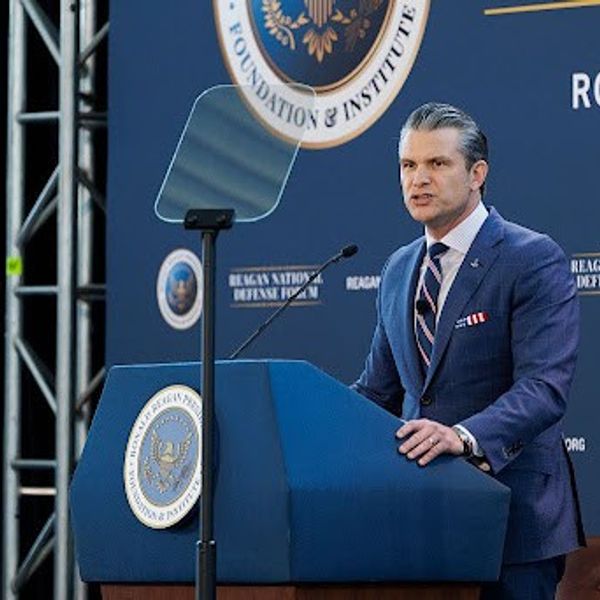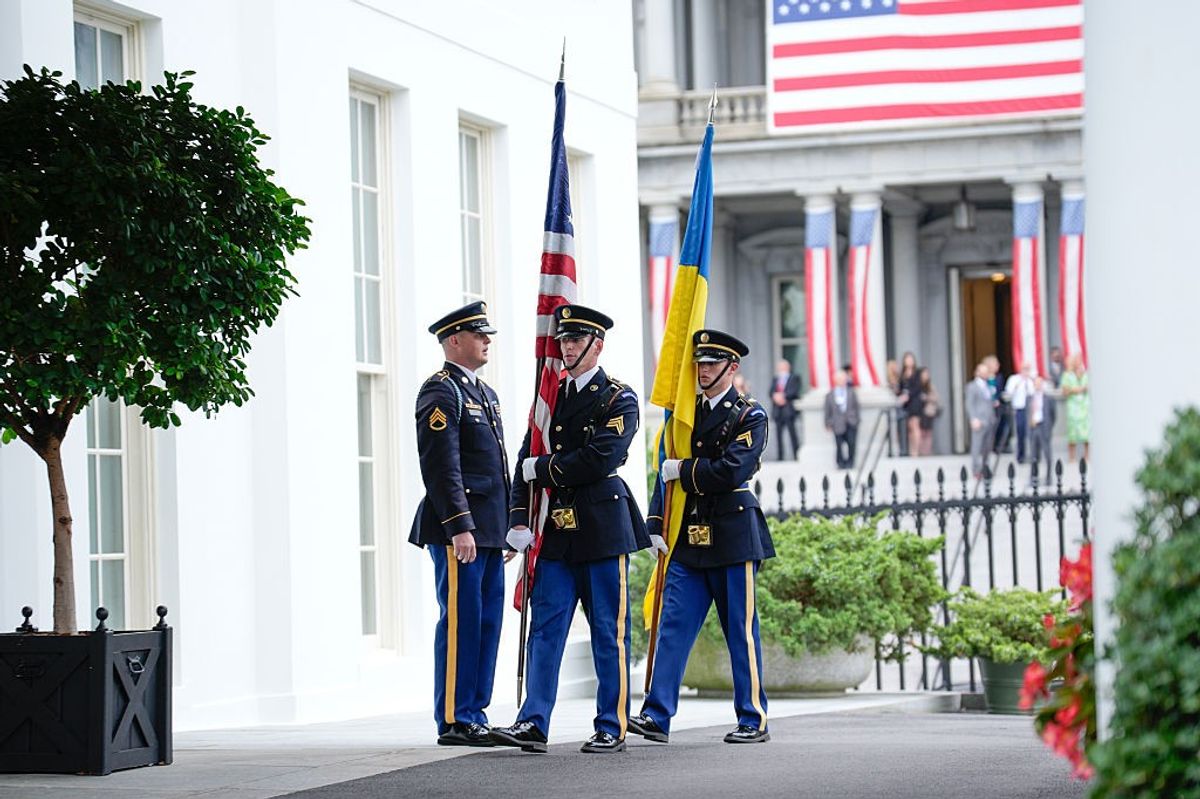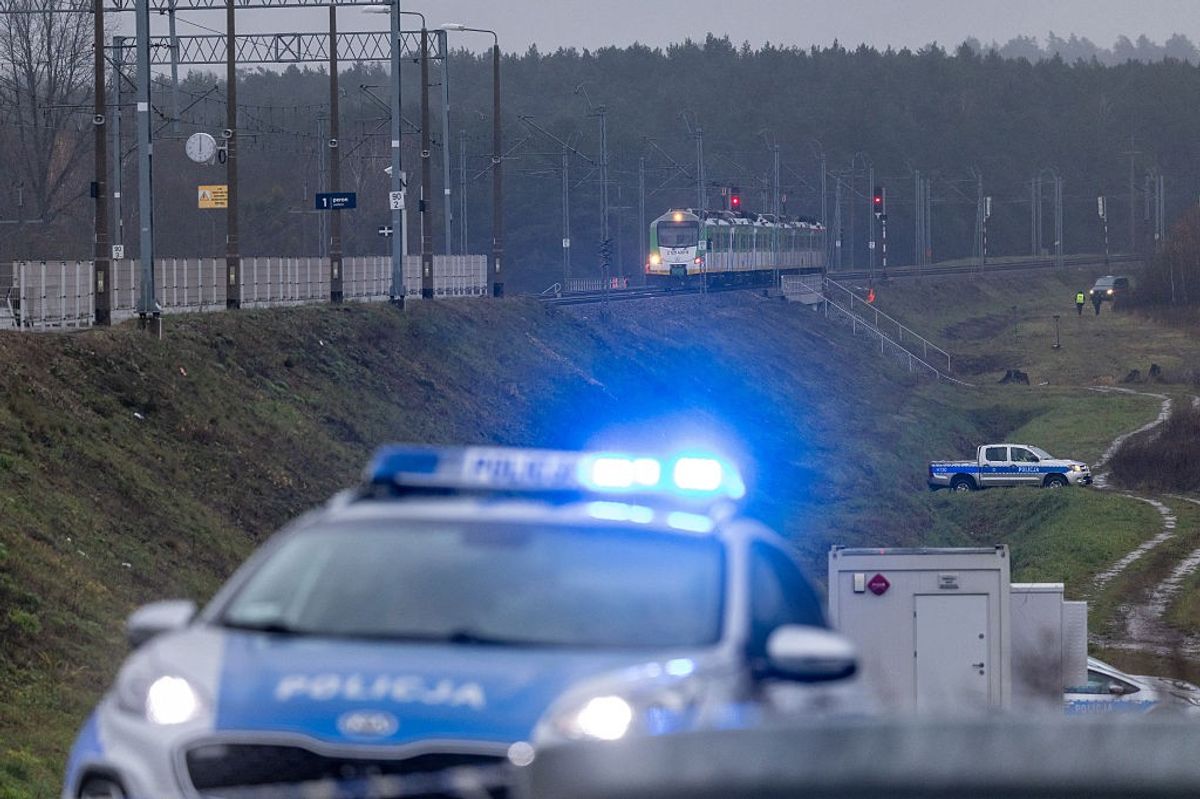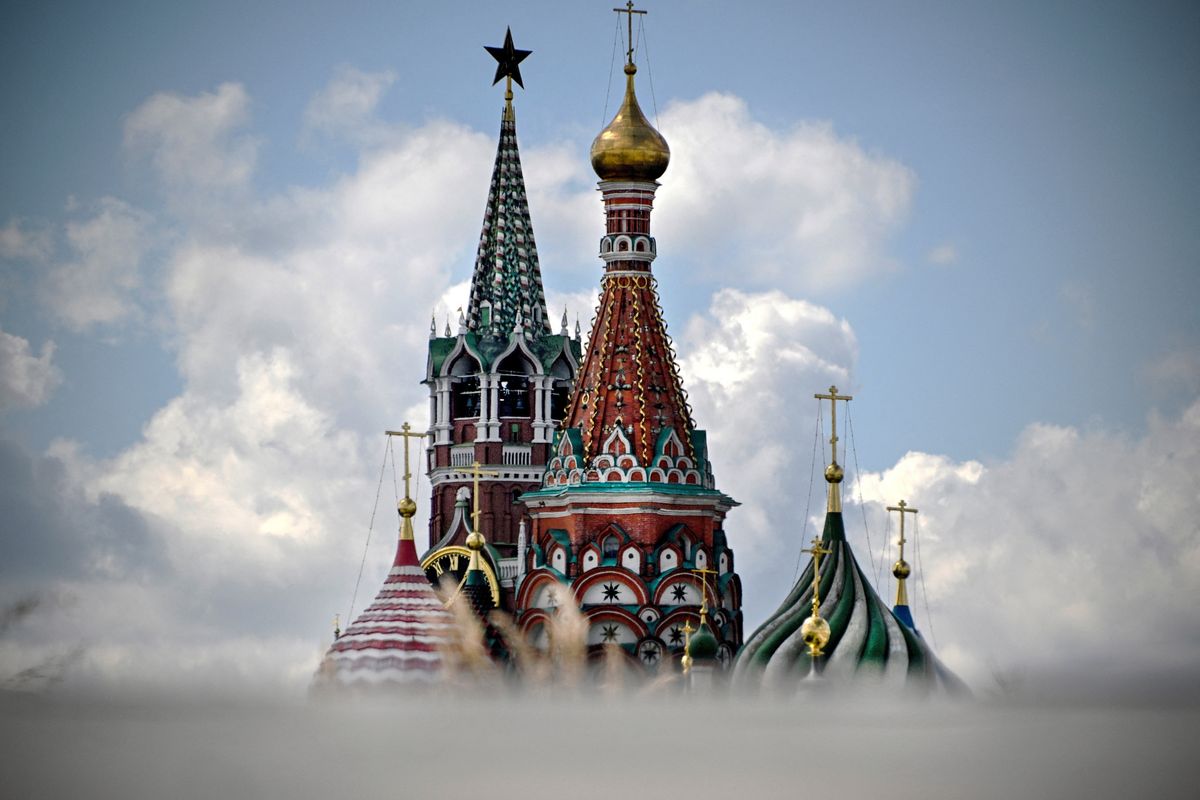EXPERT Q&A — The Cipher Brief spoke to several experts who attended the recent Munich Security Conference, which — as we have been reporting — featured a new antagonism between the U.S. and Europe, largely over a Trump administration tilt towards Moscow. Ukrainians and other Europeans bristled at the launching of U.S.-Russia negotiations on the war with no European representation, as well as a speech from Vice President JD Vance that was sharply critical of European democracy. Since the conference, that breach has only worsened, following Tuesday’s U.S.-Russia talks in Saudi Arabia and President Trump’s harsh criticism of Ukrainian President Volodymyr Zelensky. On Wednesday, Trump called the Ukrainian leader a “dictator” and blamed him - not Russian President Vladimir Putin - for the Russian invasion of Ukraine.
Among those who offered their reflections from Munich was Dr. Evelyn Farkas, the Executive Director of the McCain Institute and a former Deputy Assistant Secretary of Defense. Among other things, she worries about fundamental questions involving what the U.S. stands for in terms of its values and its place on the global stage. "There's a real challenge to Europe to stand up for its values," Dr. Farkas said, "and there's a real question mark about what America's values are right now." She spoke with Cipher Brief CEO Suzanne Kelly, as part of our series of “Dispatches from Munich.” Their conversation has been edited for length and clarity. You can watch the full interview on our YouTube channel.
Kelly: How is the Munich Conference different this year?
Dr. Farkas: Last year the pressure was on the United States. There was a lot of disappointment and upset with us because we had slowed our assistance to Ukraine through the U.S. Congress; members of Congress were under a lot of pressure from the Europeans. This year, it's different. It's a situation where the Europeans are actually looking at the United States, not with disappointment, but with anger and with a real question mark about whether we are still going to be their allies in the future, which is something I don't think I've ever really experienced as seriously as we're feeling it today. It's a real difference in tone, and there's also another element, which is fear. Fear among the Europeans that they will be left alone to essentially fight against Russia.
Kelly: What is driving that fear?
Dr. Farkas: I think the Europeans are feeling they're being criticized by the U.S. government rather than hearing the U.S. government criticize Russia, China, Iran, North Korea, all of the autocrats. So it's a very odd situation to be in. Also, the American government is speaking a lot about internal European affairs, internal German affairs, which obviously the Europeans don't take too kindly to.
At the moment, the real existential threat is Russia. Ukraine is standing and fighting, but the Europeans are now understanding that they might be fighting Russia soon. So it's much sharper right now in terms of understanding the threat and frankly understanding that Europe might not be able to count on the United States in the near or medium term.
Kelly: One of the things that JD Vance got up and talked about was political suppression of opposition voices, and in particular in places like Germany. And it strikes me, you were there a year ago when Alexei Navalny's widow was there. He, of course, was a jailed Russian political opposition leader and news broke that he had actually died in Russian custody. That can't be lost on the people who are really paying attention to what's going on.
Dr. Farkas: As you said, last year we had the freedom fighters who were put in sharp relief, showing exactly what we stand for in the West: for freedom, for freedom of expression, for freedom to live in a democracy, to choose your own political system once you're in that democracy, and to affiliate with NATO and the European Union if you so desire. And right now, I don't even know how to explain what type of juxtaposition you have, but it doesn't feel the same. There's a real challenge to Europe to stand up for its values, and there's a real question mark about what America's values are right now.
Listen to ‘Dispatches from Munich’ with General David Petraeus (Ret.) as he lays out Ukraine’s options while discussions take place between the U.S. and Russia on how to end the war – exclusively on The Cipher Brief’s digital channel on YouTube
Kelly: There was a significant congressional delegation from the U.S. there in Munich, many of them Republicans. You head the institute that is named for former Republican Senator John McCain, who was such a strong voice of leadership within the party. I'm curious — you're now seeing some of the Republican leaders sort of scratching their heads or distancing somewhat from what they heard JD Vance say on stage. What would John McCain say at this point?
Dr. Farkas: Well, John McCain would actually be saying many things that are similar to what President Zelensky said on the stage. He would be saying, We need to stand with Ukraine because Ukraine is standing up for us. If we don't stand with Ukraine, then Europe will fall. And like it or not, our economic, our political, our military future is with Europe. And if we don't stand up to Russia, China will take this opportunity as well and will exercise influence in the Asia-Pacific, where we have a lot of interest as well.
John McCain would be very clear on this. I traveled here with the Republicans. I think that their perspective is the same as John McCain's. Of course, they're not articulating it clearly right now because they are not in the leadership position in their party. And frankly, John McCain didn't care who was sitting in the White House — he would voice his opinion. But they are, as you said, increasingly explaining that no, they do not want to decouple from Europe and that our values are shared. It's just that we're hearing some other voices that sound contradictory right now, unfortunately.
Kelly: We spoke earlier with Bill Browder, also there in Munich, and he said that it sounded like the vice president's speech could have been written in the Kremlin. Are you hearing those same things with those other Republican senators and members of Congress that you're traveling with, or are they just trying to be more cautious publicly, but they're angry privately?
Dr. Farkas: The Republican senators are saying the same things they have said time and time again every time they traveled with John McCain. They are saying, Yes, Europe needs to step up, but that's not different from John McCain and the other times that members of Congress have come and spoken to Europeans. You know, we Americans have been telling the Europeans for decades now that they should do more. That's not different. I don't think that the Republican message among the congressional delegation is aligned in the same way with some of the, I guess, MAGA folks who are much more isolationist.
Kelly: And Europe does seem to be at least hearing the message. We've spoken with a few people here as well who have said that they're realizing it's a bit of a wake-up call. I'm wondering what is the buzz there on the ground about how this new administration with the Trump administration may impact NATO and how big of a concern is that?
Dr. Farkas: There’s a concern among the Europeans that somehow America might make decisions with Russia, with other great powers above their heads. There is also, of course, a fear that somehow Europe will be negatively impacted because America will either officially withdraw from NATO or unofficially withdraw from NATO, remove our troops from Europe and otherwise try to give Europe the upper hand and take a back seat. There is this fear that somehow America will abandon Europe — or even worse, that America might decide the fate of Europe over the heads of the Europeans.
Kelly: What is going to be your biggest takeaway, do you think, from this year's Munich Conference?
Dr. Farkas: I think really President Zelensky's words, asking the Europeans: are they ready to stand up to Russia?
The Cipher Brief is committed to publishing a range of perspectives on national security issues submitted by deeply experienced national security professionals. Opinions expressed are those of the author and do not represent the views or opinions of The Cipher Brief.
Have a perspective to share based on your experience in the national security field? Send it to Editor@thecipherbrief.com for publication consideration.
Read more expert-driven national security insights, perspective and analysis in The Cipher Brief













